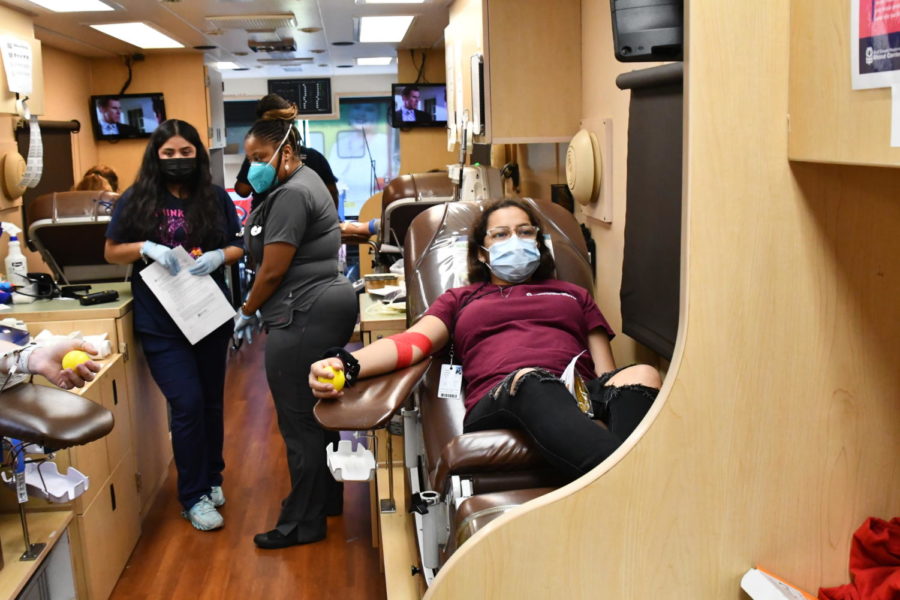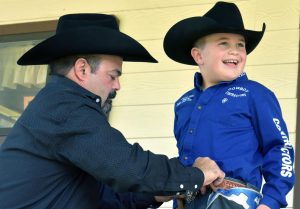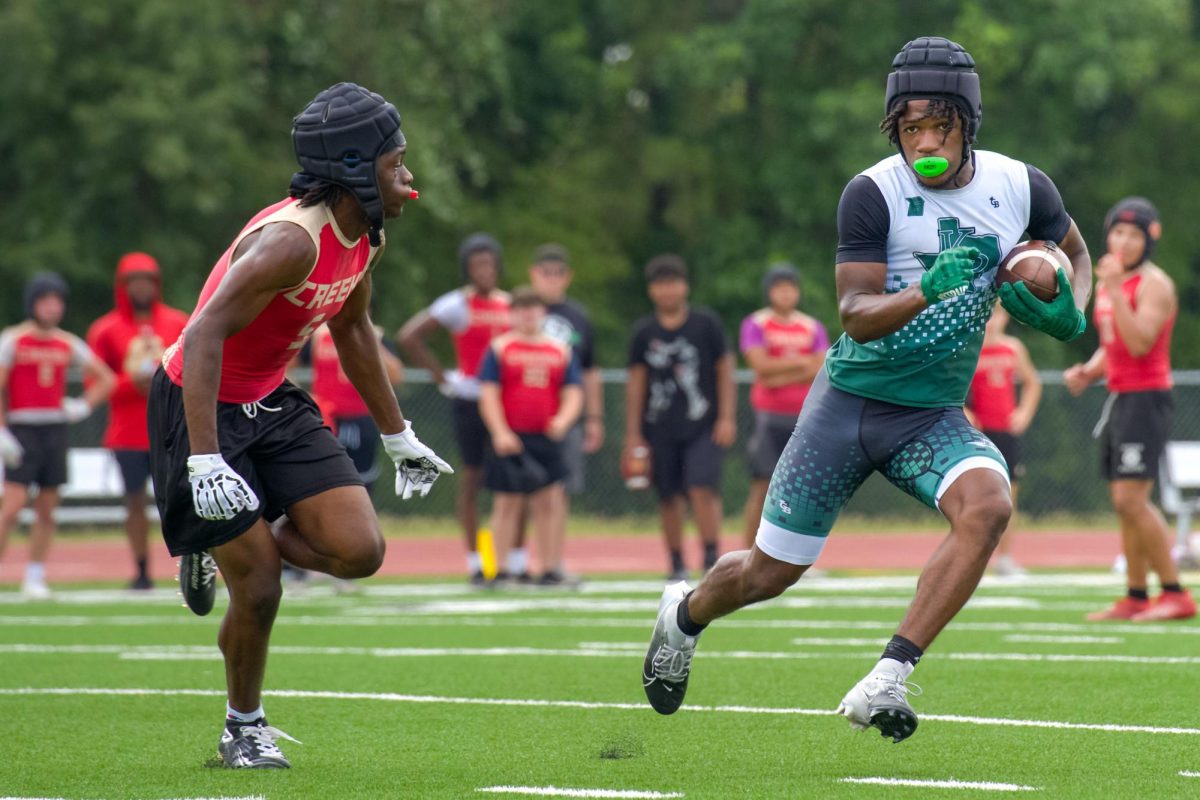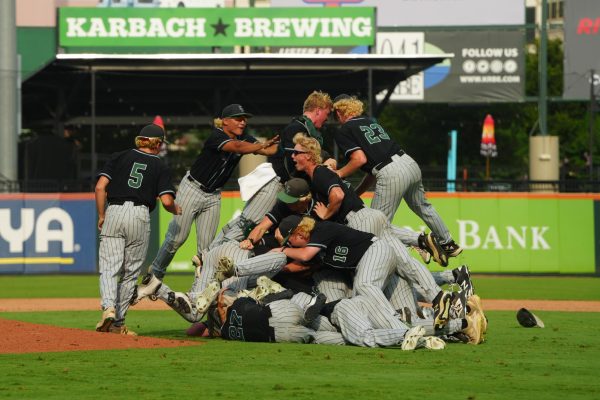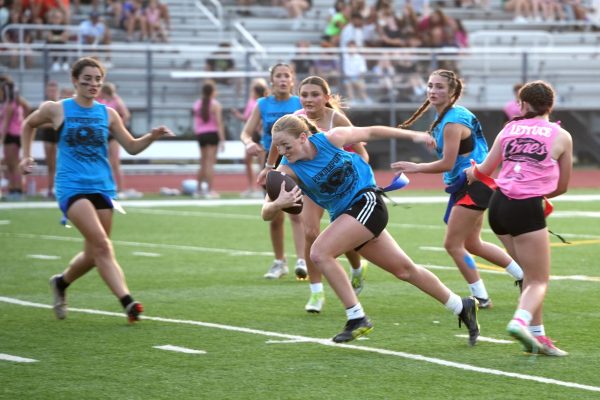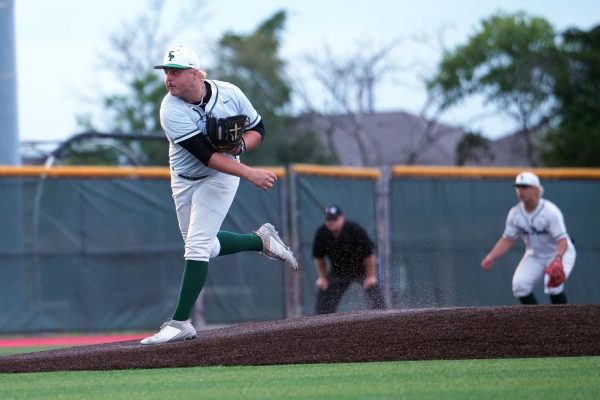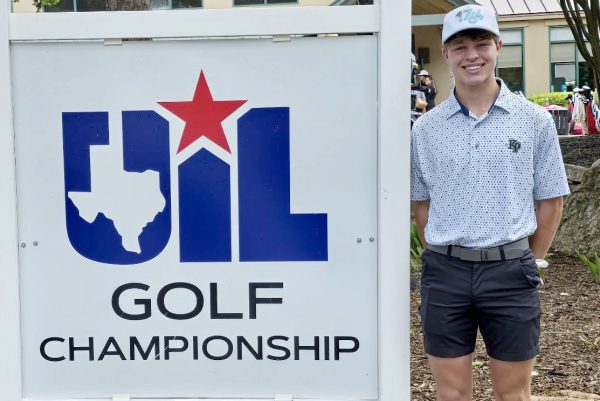Openings still available for HOSA blood drive
Junior Victoria Ramos donates blood in the Gulf Coast Regional Blood Center van. HOSA organizes four blood drives each year.
February 23, 2022
The second to last blood drive of the school year takes place tomorrow, Feb. 24, at the school. Today is the last day for students under the age of 18 to sign up to donate blood.
“Many of us know someone who has received a blood transfusion and so with these donations it goes to help those that are in need, that need the blood,” Health Science teacher Leanna Rockwell said.
Rockwell said that the majority of the time slots still open for students to donate are before school starts in the morning or during flex lunch. While students 18 years or older can sign up to donate blood tomorrow since they don’t need parent permission, Rockwell says there is no guarantee that there will be time or space available to accommodate them.
In order to donate blood, students must be at least 16 years old, have parent permission if they are under 18 years old and weigh 120 pounds. Students who plan to donate blood are recommended to eat a healthy meal and drink plenty of water the day before and the day of their donation.
“Not hydrating and not eating can cause adverse effects and that’s usually where people start to feel faint, pass out or have a bad reaction to it,” Rockwell said.
After donating blood, students should keep the wrap that they were given on their arm for at least four hours and not work out for at least 24 hours afterward. They should also make sure to hydrate and eat meals, even if they are light meals.
“When you sign up to donate, let us know if you’re afraid of needles,” Rockwell said. “If you have any apprehensions, we can usually calm you down because they don’t know what to expect from it. It’s a really quick and easy procedure.”
The blood drive takes place in an air conditioned bus, where they often play movies to distract the students giving blood. On top of that, if students let the phlebotomist know that they are afraid of needles, they can shield the needle from the student as much as possible.
Gulf Coast Regional Blood Center, who does the Kingwood Park blood drives, supplies all of the hospitals in the area with the blood that they need.
“High school students make up about 30-35% of the total donations that they receive,” Rockwell said. “A lot of blood centers are in a crucial spot right now to where they’re not able to meet the demands of the hospital. Gulf Coast likes to have a three-day supply so that way they have a cushion; but right now, they’re only at a one-day supply, so that means if people cancel they may not have the blood that they need.”


